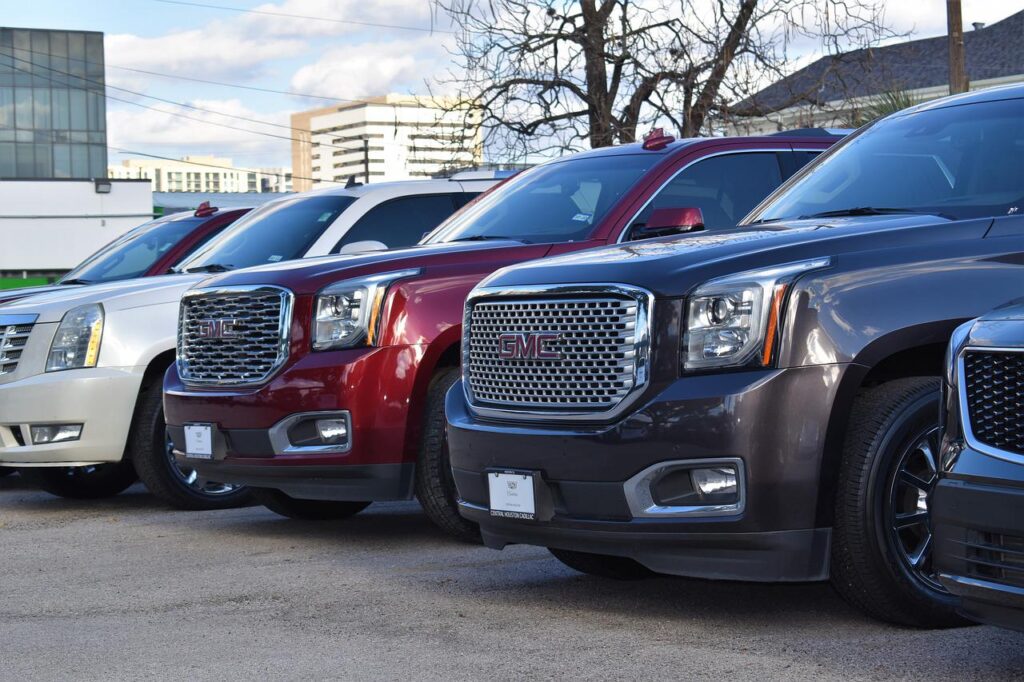
Dealerships that offer in-house financing – also called “buy-here, pay-here” dealers – may seem like an attractive option. They let you handle your vehicle purchase and financing at a single place, often dealing with just one or two people along the way. But are they actually a good solution? Or is a car dealer’s in-house financing always a bad deal? If you’re asking questions like that, here’s what you need to know.
Pros and Cons of Buy-Here, Pay-Here Car Financing
The Benefits of Car Dealer In-House Financing
In-house financing at a car dealership does come with some benefits. First, it’s incredibly convenient, allowing you to handle all of your purchase needs in one location. Along with squaring away your financing, the dealer can bundle in the rest of the transaction, ensuring the car price, trade-in, and all other factors are part of one straightforward equation.
Second, in-house financing can usually let you handle everything in a single day. There typically aren’t many steps between you and driving away in a new-to-you vehicle. If you need a car fast, that could make this option more attractive.
Finally, you may have an easier time qualifying for in-house financing if you don’t have good credit. Many of these arrangements are designed with those with lower credit scores in mind. Since that’s the case, it may be a more viable approach if you’re in poor credit territory.
The Drawbacks of Car Dealer In-House Financing
While car dealer in-house financing does come with some benefits, there are plenty of drawbacks, too. The biggest one is usually the interest rate, which may be far higher than you would get if you worked with a bank, credit union, or another traditional lender. As a result, you could effectively overpay for the car, which isn’t ideal.
Another drawback is that the loan terms are typically pretty strict. Missing a payment by even just one day may trigger penalty interest rates or repossession, depending on the nature of the lending agreement.
Finally, many car dealerships that offer in-house financing sell strictly older cars, many of which may not be in great repair. There are laws protecting you from serious safety defects, failures to disclose major accidents, major breakdowns beyond a reasonable level, and similar issues. However, there isn’t protection against faster-than-expected wear and tear issues or similar problems that may lead to repair costs. As a result, the car may end up costing you a lot more than you planned right away.
Should You Ever Use a Car Dealer’s In-House Financing?
Generally speaking, the drawbacks of in-house financing outweigh the potential benefits. If you have access to traditional financing, you’ll typically end up paying less in interest by going that route. Plus, the terms may be a bit more flexible, allowing you to avoid costly penalty interest rates or repossessions if you make a minor misstep.
However, if your credit is poor enough that you can’t qualify for anything else, it is a pathway to a vehicle. Just be aware of the contract terms and ensure you make timely payments. Otherwise, you may trigger penalties or repossession.
Additionally, if you’re looking at older used cars, assume that you’ll have some repair bills on the horizon. If possible, have the vehicle inspected by a reputable repair shop before purchasing. That way, you can estimate what you might need to spend in the coming weeks or months. Then, you can use that information to ensure you have enough set aside or can take it to the dealer to potentially negotiate in some repairs or get a lower price.
Do you think it’s ever a good idea to use a car dealer’s in-house financing? Have you used in-house financing and want to tell others about your experience? Share your thoughts in the comments below.
Read More:
- The Top 5 Most Common Myths and Misconceptions About Certified Pre-Owned Vehicles
- Selling Your Vehicle Via a Private Sale-Follow These Steps
- 5 Things to Keep in Mind While Buying Auto Insurance
Tamila McDonald is a U.S. Army veteran with 20 years of service, including five years as a military financial advisor. After retiring from the Army, she spent eight years as an AFCPE-certified personal financial advisor for wounded warriors and their families. Now she writes about personal finance and benefits programs for numerous financial websites.